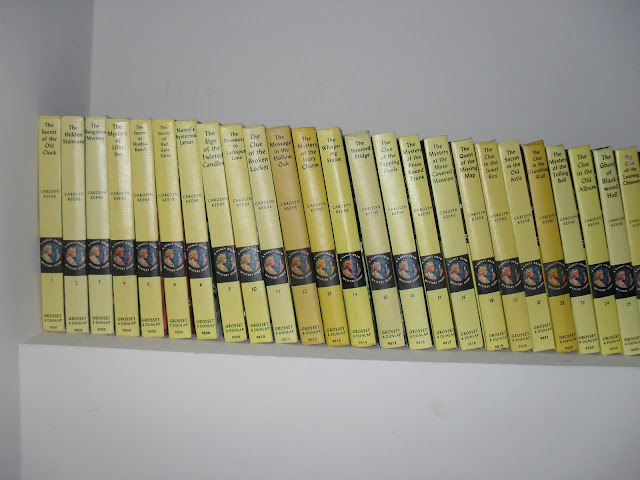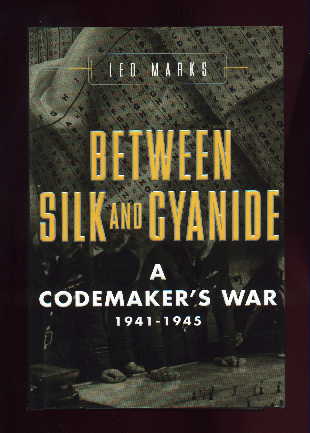I have two shelves on the main level, which is also my office. I have no living room, or rather I live among the books.
 |
| This is my reference shelf, for the most part. |
From the top:

The top is a mixed bag, because I ran out of room. From archeology, which has always fascinated me, to China to WWII and a few classics.
Next shelf: Writing references, including Hemingway and Stephen King, my favourites. I know, I'm weird.
Egypt, geology (bet you don't know many people turned on by rocks), the Fodor's Guides, you know, the essentials.
Going down:
 |
The shelf below contains a few of my favourite modern novels: The Bartimaeus Trilogy, of which there is only one, because another avid reader in my family appropriates and lends them out--never to be seen again. The Hunger Games--Book One repurchased as a paperback--and, of course, Wilbur Smith classics, Cryptonomicon--one of the bulging tomes I thoroughly enjoyed (let's not discuss Ann Rand) and The Historian--vampire or not, it was excellent.
Continuing on:
This is my larger volumes' reference shelf, mostly WWII and Egypt. Are you beginning to understand where my obsession lies? And yes, it continues onto the floor. My larger volumes tend to accumulate beyond the capacity of one shelf.
The next shelving unit has a few different books. We'll start with the literary...
Wall of Shame
The left side has the books I've read, for the most part. Shakespeare, Poe, Hemingway, a Giller Prize winner, but the right side has classics I fully intend to read, someday.
Next are my classic favourites:
Ann of Green Gables, Lord of the Rings, Anne Frank, C.S. Lewis, Dickens! and a few modern favourites: Kenneth Oppel's Airborn series, The Book Thief, The Giver. Now how did Agassi get in there? Avid tennis fan, I'll admit it.
On the bottom:
On the way to the basement: Recognize these?
And a close up:
Remember The Secret of the Old Clock? This was my first series as a child, purchased second-hand by my parents. Can't part with it.
In the basement, beside the hockey sticks: The Adult Fiction Shelf
Do I really need to explain this one?
And across the room:
Middle Grade, Young Adult, Fantasy.
Need I say more?
Yes, you do see Twilight there. Ignore it.
My delightful magazines are on the table, the few I don't have in DVD:
I haven't found a home for them yet.
And last, but not least, the "to read" stacks, the short version:
But I'm starting a new library now.
And this is what it usually says.
Well, that's it. You might think I'm rich with all these books, but honestly, I have no furniture. Hand-me-downs. Priorities, you see. I live for story and story lives on through me, I think.




















